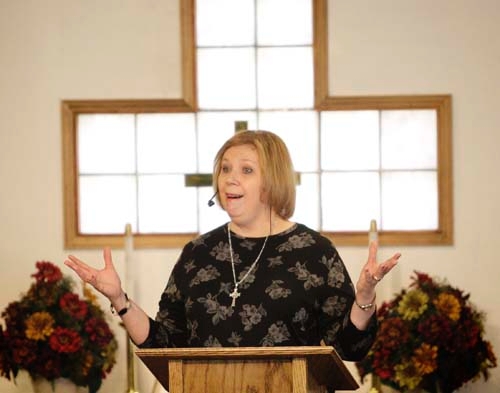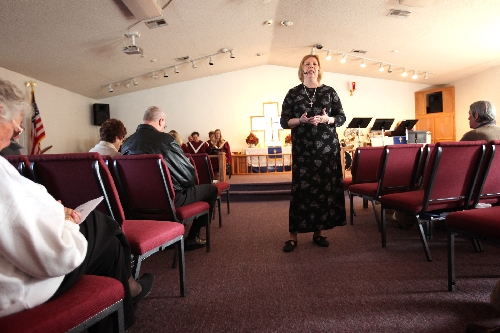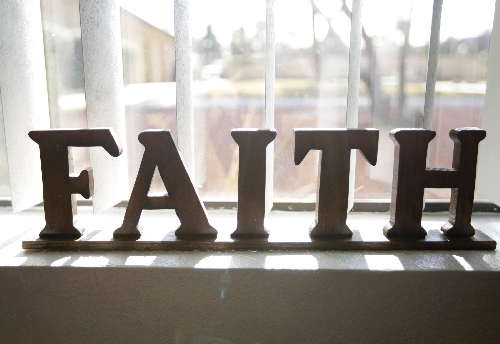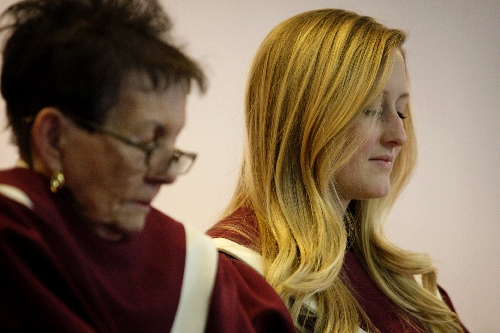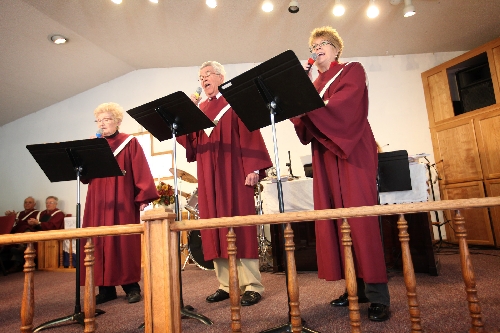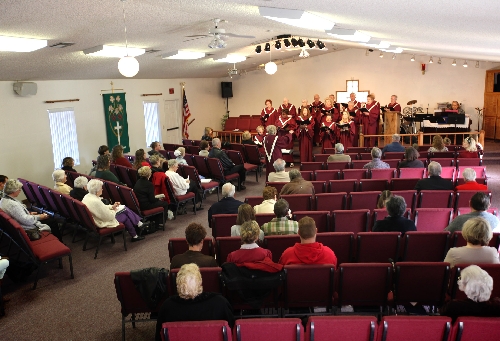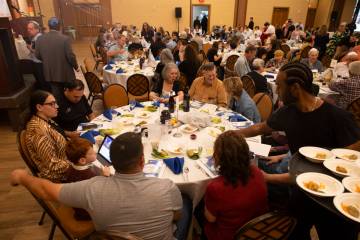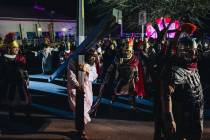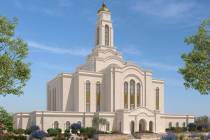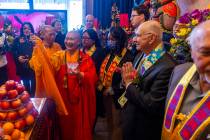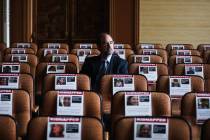Valley churches pursue ‘Christmas-and-Easter Christians’
In ministry, they're known, usually derisively, as "C&Es," and if you go to church only when the people outside are dressed as shepherds or when there's an Easter egg hunt taking place in the parking lot, feel free to count yourself among them.
C&Es - Christmas and Easter Christians - long have been fodder for ministerial jokes and even occasional targets of chastisement from pastors for their, let's call them lackadaisical, worship habits.
But you won't find many valley ministers joining in on any of that. For them, C&Es are something else: people who, given a bit of encouragement and a favorable Christmas or Easter worship experience, might turn into regular churchgoers.
First, the Rev. Jim Robinson noted with a laugh, C&Es are "not a stereotype. These folks exist."
That was reconfirmed a few weeks ago when Robinson, pastor of First Henderson United Methodist Church, and other local pastors saw attendance jumps at Christmas Eve and Christmas services.
Why do people who don't make it to church on any other weekend of the year show up on Christmas and Easter? Maybe it's the pull of tradition, as occasional worshippers seek to experience the traditions of their pasts.
"People who come, especially to midnight Mass, for example, might be doing it as a reliving" of childhood experiences, said the Rev. Robert Stoeckig, pastor of St. Andrew Catholic Community in Boulder City. "Something strikes them, and they feel like, 'Oh, I really am missing something in my life,' and often will be inspired to come."
Maybe it's because work schedules, logistical issues or other commitments throughout the year don't allow C&Es to carve out regular weekly church time.
"Maybe they've moved recently and have never gotten around to going to the local parish," Stoeckig said. So, they might take advantage of a day off on Christmas or Easter to do so.
"Maybe they've made a New Year's resolution to be more consistent about coming to church," Stoeckig said. "A lot of times, they'll start the new year and say, 'I really do need to get this back in my life.'
"People don't necessarily stop coming for a particular reason. It's just that their lives get overcrowded."
The Rev. David Wobrock of First Good Shepherd Lutheran Church in Las Vegas estimated that attendance there totaled between 500 and 600 this past Christmas Eve, versus typical weekly attendance of between 350 and 400.
Then, as usually happens, attendance fell the following Sunday - "I'm sure there were those who felt a little churched-out," Wobrock said - before getting "back to normal" the next week.
Robinson said his church shows a similar pattern. Attendance jumps usually are seen at Christmas Eve and Christmas services, but the Sunday after Christmas Eve and the Sunday after Easter are most often the services with the lowest attendance.
"It kind of rebounds after that," Robinson said, adding that he saw the pattern this year when attendance "did go down that following Sunday, but we had good attendance the second week after Christmas Eve for both services."
By the way: If past experience holds, Robinson now expects to see "very good attendance all the way through Easter. Then, after Easter, it's back down again, but, then, summer is always a struggle for churches."
At Community Lutheran Church in Las Vegas, "what's interesting is, Christmas Eve, we tend to add services that day," said the Rev. Mark Wickstrom, the church's senior pastor. "We only have one on Christmas Day, and that's not necessarily our biggest attendance."
Wickstrom said Christmas Eve services at his church drew between 2,200 and 2,800 in 2012, compared to 1,200 to 1,300 on a regular weekend.
"We do see a wave effect" after Christmas, Wickstrom said. "So, we try to make the (Christmas) experience meaningful."
Stoeckig expects attendance at St. Andrew to be up over the next several weeks, aided by the relative early arrival of Lent - the 40-day-long period of preparation for Easter - with Ash Wednesday on Feb. 13.
Most churchgoers probably can recall hearing at least one negative reference to C&Es from the pulpit. But, Robinson said, "I think the worst thing a pastor can do is make them feel guilty."
Church should be "the one place where you're loved and accepted unconditionally," Robinson said.
Wickstrom said most ministers are more likely to treat a Christmas or Easter service as "an outreach experience" by sending out invitations to attend to neighborhood residents and offering first-time or occasional churchgoers brochures and fliers listing information about church programs.
Wickstrom said some C&Es who attend Christmas services do then seek to become members of the church.
"We typically run a new member class in early January as a follow-up. So if someone came in (for Christmas) and enjoyed it, we can give them the option to join," he noted.
Ministers who feel compelled to criticize C&Es also might keep this in mind: Those C&Es in the pews may be evaluating them, using their experience at a Christmas or Easter service to see if the church might have potential as their new spiritual homes.
"I think it's 50-50 in terms of those who are C&Es as opposed to others who legitimately are still looking and use Christmas and Easter as an opportunity to find out," Wobrock said.
Shy or reticent newcomers or occasional churchgoers often find the larger crowds that attend services on Christmas and Easter to be less intimidating than the smaller congregations found on other weekends.
Newcomers "feel fairly safe in coming during a holiday," Wobrock said. "We do get some people like that. There's security in numbers. And we do follow up at our church. If they leave any information at all, we follow up with phone calls, letters, whatever is appropriate."
Wickstrom said that, even if a newcomer or C&E visitor doesn't immediately choose to become a regular congregant, they'll at least know that, when the time comes that they do require spiritual aid, there'll be a church and a minister waiting.
Wickstrom even would dispute the use of the term "Christmas and Easter Christian" for its imprecision.
"I would say they're Christians throughout the year, but when they feel the need to plug in is at Christmas and Easter," he explained.
Think of it as an automobile: Maybe C&E Christians' "spiritual tank doesn't need to be filled as often," Wickstrom said, so they don't come to church as often. But, he said, they're Christians nonetheless.
And when they do need a spiritual fill-up, Wickstrom said with a laugh, "the pumps are ready."
Contact reporter John Przybys at
jprzybys@reviewjournal.com or 702-383-0280.


